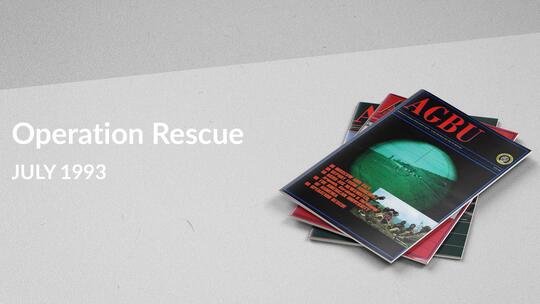by David Zenian
MOSCOW - The apathy of most Russians with politics has not curtailed the number of political parties in a country where until recently the "rubber stamp" was the only tool of legislation.
Today, in the free and democratic Russia, 34 parties - ranging from monarchists, to Greens, to various shades of liberals and socialists - are officially registered, but nearly all are small and insignificant.
One reason for the lack of enthusiasm is the deep aversion among the people to any political group with dues and membership qualifications.
This is why Russian leader Boris Yeltsin, despite his image as the nation's leading democrat, has shied away from setting up his own party.
"If you are to measure allegiance today, money is well ahead of politics. People are after money, not after joining political parties," a Western resident said.
But where is this money. While there are more top-dollar European cars on the streets of Moscow than Washington, it is no reflection of better times or improved living standards for the average Muscovite.
Money is a very elusive commodity for the majority of the people who, despite moves toward privatization, are still employed by government-owned enterprises from heavy industry to the neighborhood gas station.
"What we are seeing now is a kiosk economy in Moscow which is fueled and operated by the local mafia. In this situation money revolves in very small circles," a long-time Western resident said.
According to available statistics, there are more than 4,000 kiosks on the pavements of Moscow and the overwhelming majority sell candy, liquor and cigarettes.
While some basic foods and other supplies are marginally more abundant, inflation is making them less and less accessible to wage-earners, pensioners, single mothers and teen-agers with an insatiable appetite for Western products.
"Ruble Heads South," said a recent newspaper headline describing not the flow of cash away from Moscow, but the depreciation of the once at least artificially stable currency from 650 to 1100 to the U.S. Dollar in May alone.
Putting food on the table is becoming more and more difficult. Seeing a medical doctor or engineer moonshining as an illegal taxi driver is as normal as a college student in the west working at a gas station to pay for his education.
The rapid devaluation, coupled by increased unemployment, has not only meant more poverty, but also violence and crime which many Russians say is alien to their lifestyle.
What once was a sheepish city, Moscow now looks very aggressive. Gangs loiter around hotels, train stations and airport terminals. Crime is on the rise.
Thugs, bullies and gangsters are a common fixture outside the dozens of gambling casinos, bars, nightclubs and private restaurants catering to their wealthier peers.
While Western hotels such as the 250-dollars-plus a night Metropole and the Radisson Slavjanskay successfully keep hooligans out, similar efforts at Moscow's half-a-dozen old Intourist hotels are far less successful.
One reason for this are the poorly-paid doormen who readily accept bribes from well-dressed gangsters, underage prostitutes and rich "businessmen" who congregate in the hallways of these once-unaccessible hotels.
"You see hundreds of people wandering around these massive hotels like the Moskva and Ukraina. People call you in the middle of the night and even try to enter your room. Stories of theft and rape are very common," said a Western diplomat who asked not to be named.
Bribery is also rampant on the streets of Moscow where police check points act more like "private toll booths" rather than a service to keep traffic under control.
"Just drive around for a couple of hours and chances are you are going to get stopped by police for no good reason. A couple of hundred rubles always takes care of the problem," the diplomat said.
"We call this a supplemental income which the traffic policeman shares with his sergeant or captain."
"The same principle applies to everything from medical treatment to the purchase of a car. Things are confused and everyone is on his own. In this atmosphere, a lot of human values are being lost in the quest for more money and a better lifestyle. The problem is that only a few have the opportunity to make it while the majority slide into poverty," he said.
Western nations such as the United States are trying to help, but according to Russian officials, aid is not always effective.
"The sick are dying and the west is sending us canned food and other food products. We don't need this ... the main thing we need is medicine," a hospital director complained in a recently published interview.
"One shipment from the United States included a number of 40-foot cargo containers packed with nothing but hot sauce and black pepper, which they really cannot use because they just don't like it," a western aid official conceded in another interview.
It's a learning process for all concerned.






